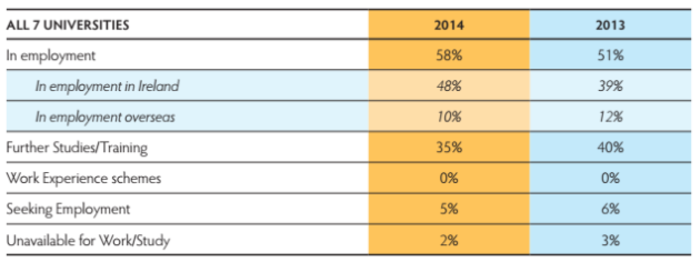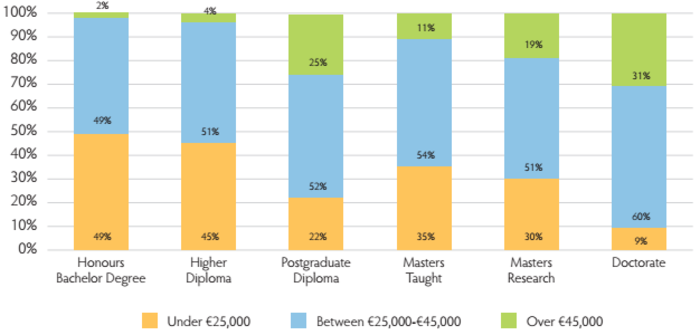The graduate brain drain is finally slowing as the economy picks up
Those with skills in IT are in particularly high demand.
IRELAND’S BRAIN DRAIN of graduates has slowed with the recovering economy – with those who studied IT enjoying particularly buoyant prospects.
In its annual ‘what do graduates do?’ survey, the Higher Education Authority (HEA) reported fewer graduates from the class of 2014 had gone overseas to work compared to the previous year.
Nine months after their graduation, more than half of those with honours degrees were in work in Ireland, up from 39% from the 2013 cohort. One in 10 were employed overseas, against 12% a year earlier.
The share who had jobs in the Republic was easily the highest it had been since before 2009, although the proportion working overseas also remained significantly above that from the early years of the recession.
HEA CEO Tom Boland said the data showed positive outcomes for graduates overall with fewer ending up outside Ireland for work.
“The report also shows that there are strong employment opportunities in computer science and ICT, with graduates in those areas reporting high levels of employment and pay,” he said.

Click here for a larger version
More international students were also choosing to stay in Ireland after their graduation, suggesting the country was seen as a popular destination for employment, he added.
Graduates with qualifications in education, computer science and IT, and health and welfare were the most likely to have jobs, with at least three-quarters of all those groups in work.
That compared to less than half for graduates who studied arts and humanities, the majority of whom were listed as doing either further study or training.
Follow the money
When it came to salaries, the survey found just over half those who completed an honours degree in 2014 were on incomes of more than €25,000 nine months later. Of those with doctorates, nearly one-third reported earning over €45,000.

Click here for a larger version
Arts and humanities graduates with bachelor degrees had easily the largest share earning below €13,000. One-quarter of all the respondents who studied in those fields made up the lowest income bracket.
In contrast, nearly two-thirds of computer science and IT graduates were earning at least €29,000, with 8% in the top bracket of €45,000-plus.
Employers in Ireland’s skills-hungry tech sector have been complaining of candidate shortages for several years – despite the explosion in unemployment when the economy tanked.
Agriculture and veterinary studies had the next-greatest share in the higher earning brackets, with just over half earning more than €29,000.






